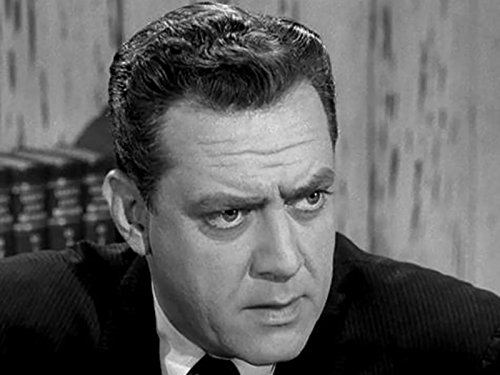'Babylon Berlin' and German fascism; 'Superstore' and the age of Amazon

Dennis Broe reviews more series TV, from Germany and from the U.S. Image above: military fascists in Weimar Berlin
Season three of the German megaseries Babylon Berlin continues the exploration of the tensions in the Weimar Republic, as it moves inexorably toward its demise and its replacement by fascism. The series centres around Inspector Gereon Rath, a sometimes staunch defender of the democracy and Charlotte Ritter – a vivacious character created for the series and not in the Volker Kutscher novels – who is a dirt-poor but brilliant club-girl or flapper, who wants to become an inspector herself.
In the Weimar mix are Communists, Republicans, brown-shirted fascists and financiers, this last group promoting chaos and themselves supporting and intrigued with the fascist ideals. A very strong aspect of the series is that it does not reduce German fascism to Hitler, but instead depicts the much broader currents of the society that supported it, including the aforesaid banks and investors and those in the army and the police who were appalled by the spectacle of democracy.
Seasons one and two revealed the fascist support at the heart of the Berlin police force, while season three in its multiple strands includes a Nazi conspiracy, fuelled and organized by an ex-army officer and now one of the police commissars, to blame the Communists for a bombing that killed one of the Republic’s defenders.
Another of the multiple strands involves the 1929 stock market crash – the series begins with the collapse of the market and then flashes back – that has the fascist-favouring scion of a wealthy company preaching the good that come from total financial chaos. He then shorts the market and benefits from the global economic destruction wrought by the collapse of the American market.
The other main focus of this season concerns a series of murders in what amounts to a German super-production, an expressionist film musical that will introduce German audiences to sound and that recalls the American first sound film and musical, The Jazz Singer. The high quality production values make the film a comment on what Babylon Berlin is accomplishing in the present. In other words here is a German series, co-funded by German national television, filmed itself at the main German studio Babelsberg, the centre of the renowned era of Weimar production, and co-produced by a German auteur with a global reputation, Tom Tykwer (Run Lola Run, Cloud Atlas).

A Communist Rally in Weimar Germany
In its lavish recreation of the period, complete with long shots of densely populated Berlin streets, notable platz or squares and Caligari-like production numbers, the series is designed to rival megaseries such as HBO’s Game of Thrones and Westworld. Just as the musical is attempting to reposition German film to take on the Hollywood behemoth that had throttled European film production devastated by World War I, so too Babylon Berlin is a successful attempt to put German serial television on the global map, and challenge Hollywood. (Though the series is now distributed worldwide on Netflix.)
This series also has far more to say about the nature of German fascism and its origin – this is more Berlin Alexanderplatz with its complex analysis of the class tensions that were preyed upon to bring Hitler to power – than more simplistic but bombastic fairy tales like Inglorious Bastards or more exploitative German national epics such as Downfall, about the last days of Hitler. Strong fascist undercurrents percolate around the show, but it isn’t until season three that Gereon becomes acquainted with a strange book titled Mein Kampf. In that way the show implicitly questions more simplistic retellings of the era, which supposedly began and ended with Hitler.
There are some drawbacks to this third season. The solution to the movie murder plot is not very credible, though it does call attention to a type of fascist personality. Its resolution also fails to take advantage of the mysterious costuming of the villain that has been set up throughout the season. These though are offset by quirky remembrances of cinematic times past (the iris out that starts each episode), by dramatic uses of older film plot devices (the thrilling last-minute attempt by Charlotte to save her friend from the hangman’s axe that recalls The Mother and The Law segment from Intolerance) and by the series’ resolute conviction that multiple layers of the German financial, military and police were implicated in and in favour of fascism.
'Superstore': the working class versus corporate management
The Coronavirus lockdown occurred in Hollywood just as the final episodes of many series were being shot and so for a multitude of viewers there will be no concluding episode this season. One of the casualties is the last episode of the lead actress of a little-touted but resonant working-class comedy called Superstore. America Ferrera is leaving the show, and that exit will now be carried over into next season.

America Ferrera anchors Superstore
Ferrera is a second generation Honduran actress who has now successfully anchored two sit-coms, this one and also a Hispanic take on the wonder and horror of the fashion industry called Ugly Betty. Her warm presence has been at the heart of two shows over nine seasons, a remarkable feat for a Latina, or for any actress, and which has mostly gone unnoticed.
The action in Superstore takes place in a Walmart type all-purpose venue set in a shopping mall in St. Louis. Perhaps the reason the show has flown under the radar, gaining little critical attention, is that it is heavily concerned with the problems of survival of a diverse workforce constantly challenged by, as the show puts it, “Corporate.” It’s not a sexy show which deals with middle-class anxiety over wealth but a working-class show which spotlights the everyday problems encountered by that workforce. The show is available to stream on iTunes.
The employees are often pitted against a corporate management which is constantly threatening to fire them if they organize, putting a positive spin on the store’s devastation in a tornado, and planning to replace them with robots.

Superstore’s diverse, working-class workforce
A crucial episode in the show’s maturation was 'Labour' the final episode of season one. Corporate refuses Cheyenne, a pregnant Asian teen, paid sick leave to have her baby. Jonah, the college-educated new hire proposes the workers organize and start a union. Amy (Ferrera), a manager and also Jonah’s romantic interest, opposes this move, claiming that it will only bring Corporate down on their heads. Glenn, the Christian supervisor, finally gets so frustrated with Corporate’s indifference that he orders Cheyenne home for six weeks and then adds, “with pay.” Corporate’s answer is to fire Glenn and this is too much for Amy, the least rebellious of the workers, as she leads the entire crew in a walkout. The season ends with the workers outside in the parking lot, challenging management.
Season four deals with the cruelty of US immigration policy, as ICE commandos invade the store and eventually corral Mateo, a gay Filipino and Cheyenne’s best friend. The season ends with Mateo led off to custody, and echoes the ending of Ken Loach’s Bread and Roses where a key character is likewise led into exile by a heartless border patrol.
Season five begins to come to grips with the question of automation and corporate’s attempts to replace workers with a store robot, which the workers react to by attacking. There is a confrontation scene as the company president, digitally addressing workers in this global chain which is called Cloud 9, stresses – with his eyes raised toward the heavens – his resoluteness about the company facing the future. He is confronted by a former corporate manager who explains that the future he is actually contemplating instead involves increasing automation and large-scale firings.
Superstore accepts the need for these global corporate chains but in its own resolute focus on the workforce implies they would be better run and function more humanely if owned and operated by the workers themselves, instead of by corporate capitalism. There are, of course, other ways of resisting, as detailed in Stacey Mitchell’s Big Box Swindle where whole towns have zoned these Walmart-type entities from settling in their region.
With the new focus on work conditions at Amazon as a result of the Coronavirus – the company has been shut down in France for unsafe work practices and forbidden to profit off the virus by selling non-necessary items – there are plenty of issues to fuel season six of this overlooked and undervalued series. In just the same sort of way essential workers are overlooked and undervalued in America, Britain, and indeed in the world as a whole.

Dennis Broe
Dennis Broe is the author of The House That Buff Built, the upcoming fourth volume in the Harry Palmer mystery trilogy whose subject is homelessness and the real estate industry, racial prejudice against the Chinese in Los Angeles, and the power of major media to set the development agenda.
Latest from Dennis Broe
- Reactionary reflexivity Part 2: How Police Beatings are Described as 'Heightened Chaos'
- Reactionary Reflexivity: Sealing the Iron Dome on Media Coverage of Gaza, Part One
- 'The Sympathizer': Not Sympathetic Enough
- The Good, the Bad and the (possibly) Interesting: Previews of some Spring global TV series
- The Decline of Streaming Services and the Exploitation of AI for Profit
